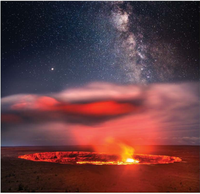Magnetic fields are intrinsic properties of planets. They are detected by the force they exert on magnetic materials and electrical charges. This principle is used in magnetometers onboard spacecraft with which magnetic fields around planets are detected and measured. Intrinsic magnetic fields are generated deep inside planets by dynamo action. Because this requires regions of electrically conducting material and energy sources to maintain the dynamo, we can learn about the deep interiors of planets by investigating their magnetic fields. In this talk, I’ll explore recent developments in our understanding of planetary interiors gained through studies of magnetism. As a novel example, I’ll demonstrate how we can use really bad magnetometers to learn about Earth’s interior.
Bio:
Dr. Sabine Stanley is a Bloomberg Distinguished Professor in the Department of Earth & Planetary Sciences and the Vice Provost for Graduate and Professional Education at Johns Hopkins University. She leads MagPI – the Magnetism and Planetary Interiors research group where she and her team employ a combination of computer simulations and data from spacecraft missions to gain insights into the interiors of planets, moons, asteroids, and exoplanets.
She received a B.Sc. degree in Physics and Astronomy from the University of Toronto and M.A. and Ph.D. degrees in Geophysics from Harvard University. Prior to joining Johns Hopkins she was a Postdoctoral Researcher at MIT from 2004-2005 and a Professor at the University of Toronto from 2005-2017.
She is the author of the book What’s Hidden Inside Planets?, published by Johns Hopkins University Press. Her awards and honors include the Dean’s Outstanding Teaching Award and the Ranjini Ghosh Excellence in Teaching Award from the University of Toronto, the William Gilbert Award of the American Geophysical Union, a Sloan Research Fellowship, and a Canada Research Chair.


